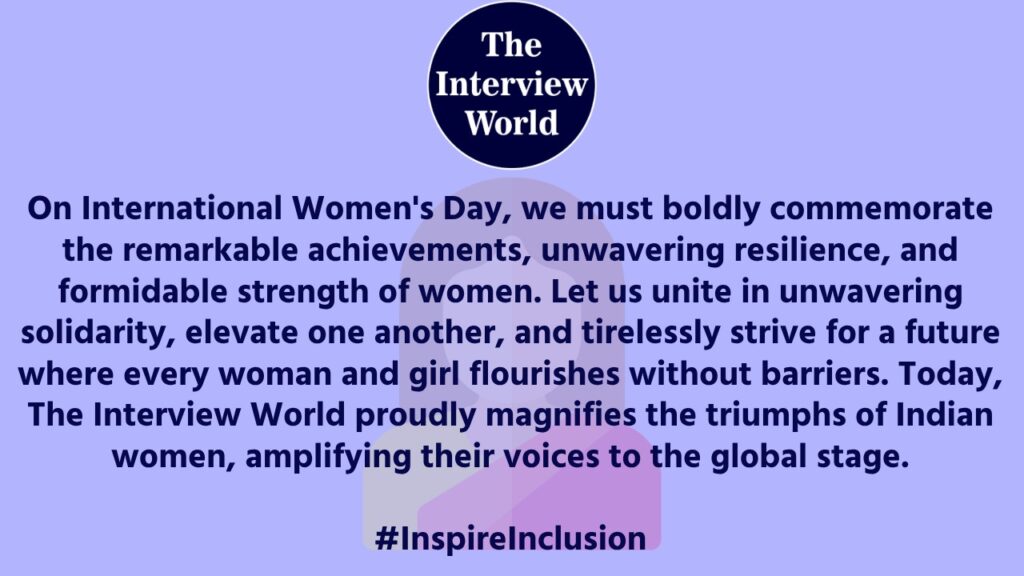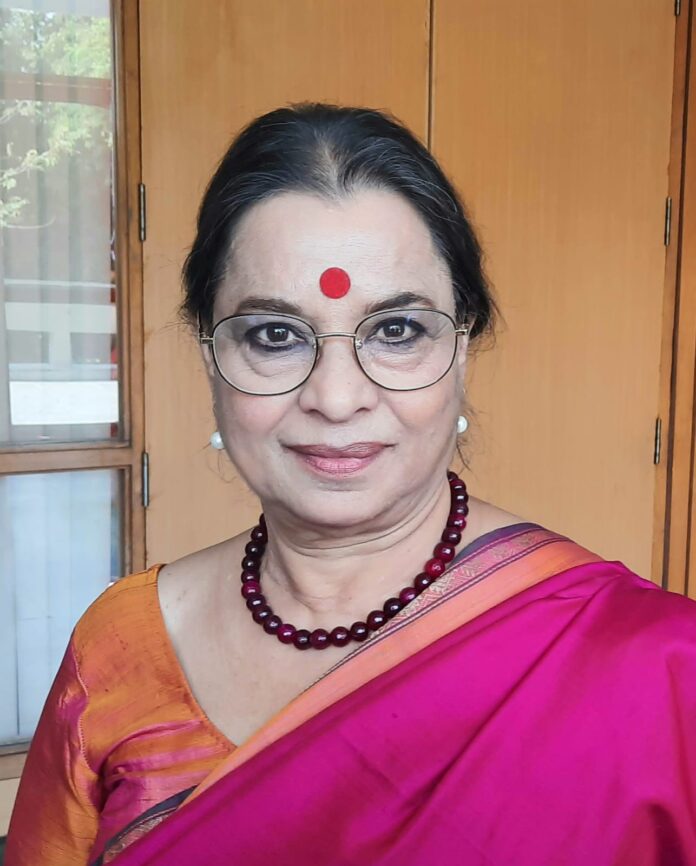Dr. Ranjana Kumari stands as a distinguished figure in both academia and activism. As the Director of the Centre for Social Research and the Chairperson of Women Power Connect, her contributions have been instrumental in advancing the cause of women’s empowerment throughout the South Asia region. With a notable repertoire of publications to her name, Dr. Kumari’s scholarly pursuits complement her fervent advocacy. Her academic journey commenced at Jawaharlal Nehru University, where she pursued her MA, M.Phil, and Ph.D. in Political Science, laying the groundwork for her multifaceted career.
Driven by a pivotal moment of witnessing a dowry-related tragedy in her vicinity in 1976, Dr. Kumari’s entry into social work was propelled by a deep-rooted commitment to combat injustice. Her seminal work on the globally renowned publication “Brides are not for Burning” underscored her early dedication to addressing systemic issues affecting women.
Dr. Kumari’s influence extends beyond the grassroots level, as evidenced by her roles as Coordinator of the South Asia Network Against Trafficking (SANAT) in Persons and memberships in key advisory bodies such as the Central Advisory Board on the Pre-Conception and Pre-Natal Diagnostic Tests Act, 2001, and the Central Advisory Committee for Prevention of Trafficking in Women and Children. Her advocacy spans crucial areas, including women’s participation in governance, combating dowry-related violence, and advocating against female foeticide.
Having previously served on the Task Force on Industrial Relations for the International Labour Organization (ILO) in Geneva and held senior positions within the United Nations, Dr. Kumari continues to lend her expertise to global platforms. Currently, she serves on the Global Safety Advisory Board of Facebook and is a member of Twitter‘s Trust & Safety Council.
As an accomplished academic, Dr. Kumari has authored numerous impactful publications, including “Gender, Work, and Power Relations: A Case Study of Haryana,” “Women in Politics: Forums and Processes,” “Reign She Will,” and “Dahej Pidit Mahilayein,” among others. Her research extends to issues of education and social transformation, as evidenced by works such as “Higher Education and Scheduled Tribe Youth: A Case Study of Chattisgarh” and “Impact of Education on Scheduled Caste Youth in India: A Study of Social Transformation in Bihar and Madhya Pradesh.”
In a distinguished conversation with The Interview World, Dr. Ranjana Kumari, Director of the Centre for Social Research and Chairperson of Women Power Connect, highlights the critical significance of women’s mental health. She underscores the necessity for policy interventions and advocates for collaborative efforts among government bodies, academia, and society. Here are the pivotal insights gleaned from her interview.

Q: What is the significance and impact of prioritizing women’s mental health?
A: Women’s mental health is frequently sidelined, largely due to societal misconceptions that trivialize women’s illnesses unless they’re deemed life-threatening. This prevailing attitude undermines the importance of addressing women’s mental well-being. However, it’s imperative to recognize that the mental health of women holds significant ramifications not only for their immediate families but also for broader societal welfare. When women’s mental health needs are neglected, it can lead to detrimental effects on family dynamics, child-rearing, and overall community stability.
By prioritizing interventions and support systems tailored to women’s mental health, we not only enhance the quality of life for individual women but also contribute to stronger, healthier families and communities. Therefore, fostering awareness and advocacy for women’s mental health issues is essential for promoting holistic well-being and societal advancement.
Q: What are the various scenarios in which women experience mental health challenges, and how can mental health policies effectively address and support their needs?
A: Ensuring the mental well-being of women across different life stages, including menstruation, postpartum depression, and childbirth, is paramount. It is during these critical periods that women may experience heightened vulnerability and require adequate support from both societal structures and their families. However, if these primary support systems falter, it becomes imperative for alternative mechanisms to step in, such as robust policies and frameworks.
Regrettably, mental health policies in many countries, including our own, have long been relegated to the periphery of public discourse and governmental priorities. This neglect is evidenced not only by the paltry budgetary allocations, which often hover around a mere 0.06%, but also by the absence of substantive discussions and initiatives within parliamentary sessions. The failure to address mental health comprehensively in legislative bodies reflects a broader societal unawareness or indifference towards the issue.
Of particular concern within this landscape of neglect is the plight of women’s mental health. Despite the unique challenges and vulnerabilities faced by women, their mental well-being often receives inadequate attention and support. This oversight underscores the urgent need for the development and implementation of holistic mental health policies that prioritize the diverse needs of women.
Therefore, advocating for and enacting comprehensive mental health policies becomes not just a matter of importance but a moral imperative. Such policies must encompass targeted interventions, equitable access to mental health services, and robust support mechanisms tailored to address the specific challenges faced by women across different stages of their lives. Only through concerted efforts and systemic reforms can we begin to adequately address the mental health needs of women and ensure their well-being and resilience in the face of adversity.
Q: How is the Indian government addressing the challenge of accessibility to institutions, services, and support systems necessary for mental health, particularly in terms of psychiatric education and stigma reduction?
A: Accessing institutions, services, and various support systems is crucial for addressing mental health needs. One key aspect of this is examining the ratio of psychiatrists to the population they serve, which highlights the accessibility challenge. In India, this challenge is compounded by historical stigmas surrounding mental health and the availability of psychiatric education.
Has the Indian government prioritized the development of psychiatric education nationwide, integrating it into psychology programs at all educational institutions? This question is pertinent, especially considering the past stigma associated with studying psychology, particularly for males. Transforming this mindset regarding mental health, particularly women’s mental health, is imperative.
Efforts are indeed underway to challenge and change this mindset at every possible level. This includes destigmatizing mental health, raising educational awareness, and enhancing access to mental health services. To achieve these goals, improved policies and increased government investment in mental health are imperative. Advocacy, both grassroots and systemic, plays a vital role in pushing for these changes.
Integration of psychiatric education into psychology programs at all educational levels would not only help address the shortage of mental health professionals but also contribute to a broader understanding and acceptance of mental health issues in society. By investing in mental health education and services, the Indian government can take significant steps towards ensuring that mental health support is accessible to all who need it.
Q: What key messages would you convey to stakeholders within the healthcare sector?
A: In our country, access to mental health assistance is distressingly limited. The government of India must integrate mental health concerns seamlessly into general healthcare services. This entails not only recognizing mental health as an integral component of overall health but also establishing robust support systems within existing institutions. Enhanced policies are crucial to effectively address mental health needs, alongside a significant increase in budget allocation.
Looking forward, it is my earnest hope that the forthcoming government will prioritize women’s mental health as a fundamental aspect of their agenda. By giving due attention to mental health, we can create a society that fosters well-being for all its citizens, ensuring that no one is left behind in their struggle for mental wellness. Such initiatives will not only alleviate the suffering of individuals but also contribute to the overall health and prosperity of our nation.



